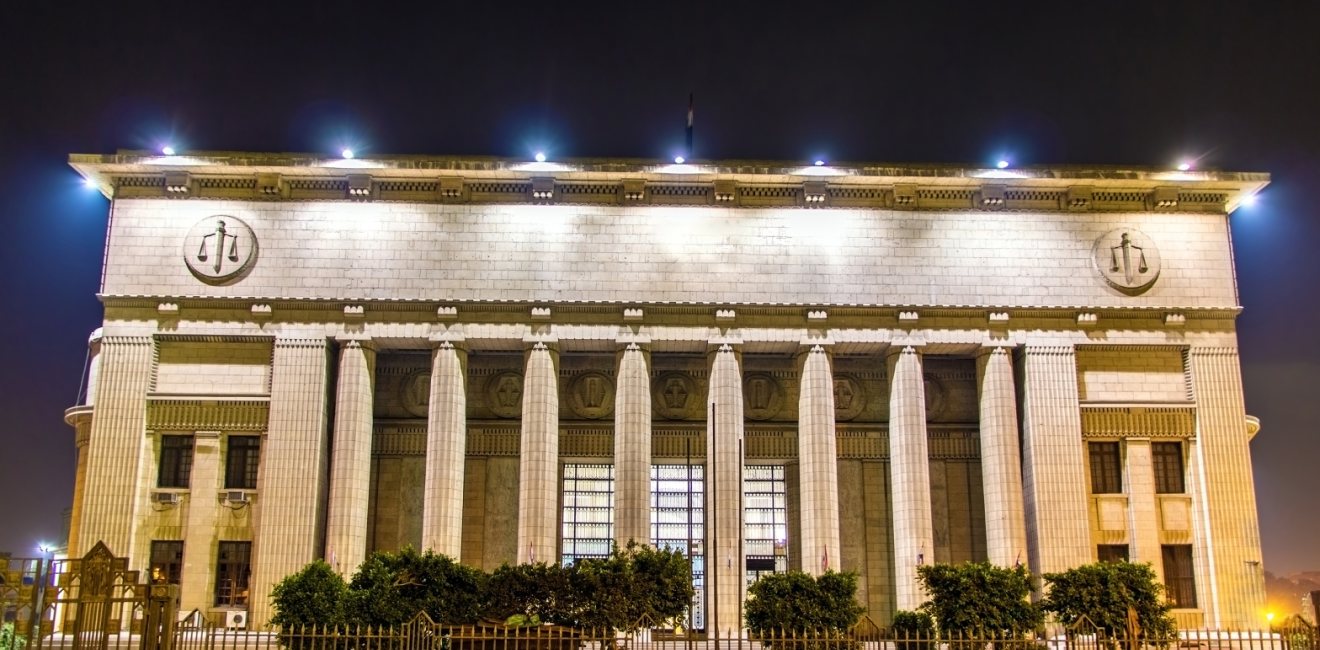
A blog of the Middle East Women's Initiative
Women are still discriminated against concerning access to judicial jobs. Solutions to this discrimination include the strict application of the rule of law.
In my November 2020 contribution to Enheduanna titled, “10 Years Since the Revolution: Why Ending Discrimination Against Women in the Egyptian Judiciary Is Still Slowing?”, I explained that the 2014 post-revolutionary Egyptian constitution provides women the right to appointment to judicial bodies. Nevertheless, Egyptian women are still discriminated against when it comes to access to judicial jobs. The Egyptian Judiciary consists of the Ordinary Courts System (starting with an appointment in the Public Prosecution as the normal way to be promoted to a judge within an ordinary court), and the Administrative Courts System (starting with an appointment in the State Council as the normal way to be promoted to a judge within an administrative court). Women are still not allowed to join either the public prosecution or the State Council. The only exception is the political rather than legislative practice, which began under Mubarak, of nominating a few women as judges to the ordinary courts every year through presidential decree. The State Council did not follow this practice, to the extent that one of its courts declined a case brought by a young female lawyer claiming her right to be appointed as a judge, giving exhaustive reasons for why women cannot work as judges.
This year, to commemorate International Women’s Day on March 8th, President Abdel Fattah El Sisi directed the Minister of Justice to coordinate with the Supreme Judicial Council to allow women to join the public prosecution and the State Council. In response, the State Council announced that it welcomes having female judges. Some argue that Sisi’s direction of the judiciary disregards its independence, but this is beyond the scope of this paper. One cannot deny that the State Council's declaration is a positive step towards women's empowerment in the Egyptian judiciary, however a deeper look into the said declaration reveals that it does not represent much of an achievement.
First, the declaration allows women to access the State Council on an exceptional basis, in the same way as the ordinary courts system, as explained above. In other words, women cannot apply, like their male peers, for judiciary posts within the State Council by normal means. Only women from the Administrative Prosecution and the Egyptian State Lawsuits Authority are nominated for the said judicial positions. The Administrative Prosecution runs investigations in civil servants' affairs and issues disciplinary sanctions, while the State Lawsuits Authority represents the state in its lawsuits, either as a claimant or as a defendant. These two entities are not judicial institutions since they do not perform an actual judicial function.
Second, the requirements to transfer women to judicial positions at the State Council are rigorous and discriminatory to the extent that such transfers hardly ever happen. Assigned women must score higher in their exams than is required for men nominated for the same position.
Third, women must pass a personal interview before the competent committee in the State Council, which expands the nominating authorities’ huge discretionary power with no clear appointment criteria.
Accordingly, my conclusion remains unchanged despite Sisi’s March 8th announcement. Appointing women to the Egyptian judiciary by way of exception results in a minimal number of female judges compared to their male peers. For instance, the number of women judges in the ordinary courts system is around 66 among more than 16,000 overall, meaning that women make up only 0.5 percent of the total number of judges. Also, directing the judiciary to appoint women as judges on an exceptional basis does not mean that discrimination against women in the judiciary is resolved. Women are still discriminated against concerning access to judicial jobs. Solutions to this discrimination include the strict application of the rule of law. Overriding defective social norms on this issue will gradually transform cultural and social practices that often stand in the way of applying the rule of law. Indeed, Islamic history includes many women scholars writing commentaries on the Qur’an, interpreting Islamic laws, and issuing fatwas. Let these historical examples lead the way.
Author


Middle East Program
The Wilson Center’s Middle East Program serves as a crucial resource for the policymaking community and beyond, providing analyses and research that helps inform US foreign policymaking, stimulates public debate, and expands knowledge about issues in the wider Middle East and North Africa (MENA) region. Read more


Middle East Women's Initiative
The Middle East Women's Initiative (MEWI) promotes the empowerment of women in the region through an open and inclusive dialogue with women leaders from the Middle East and continuous research. Read more

Explore More in Enheduanna
Browse Enheduanna
Women are the Catalysts for Change in Lebanon

How Education Can Empower Young Women in MENA


